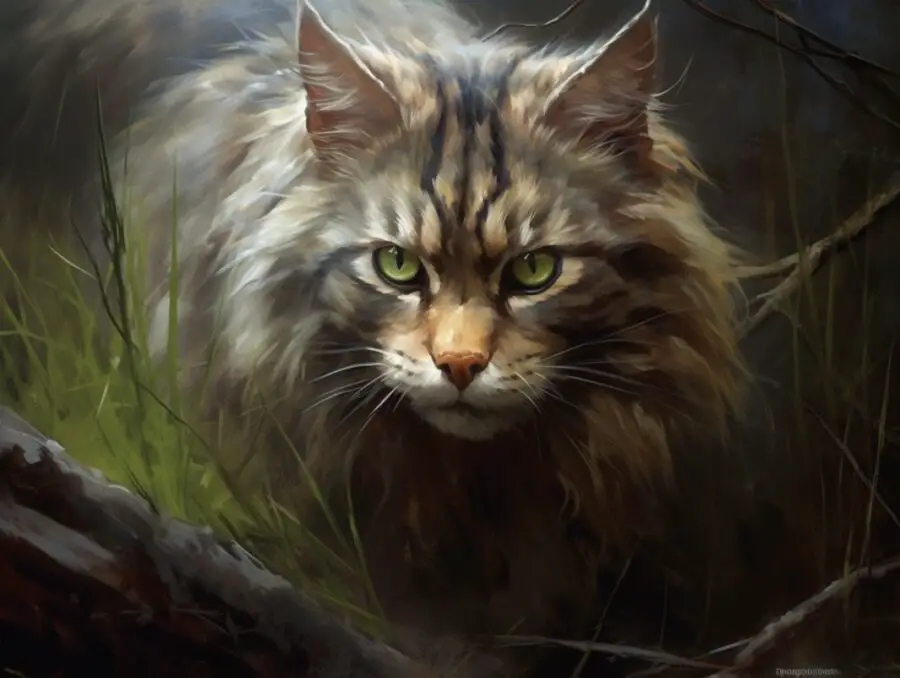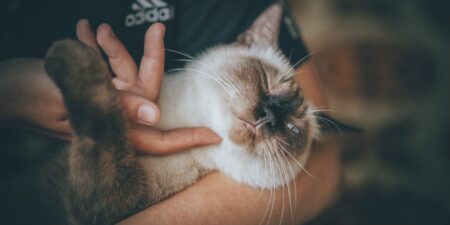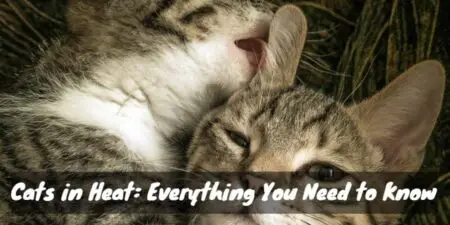Are you curious about what makes male cats so unique? Regardless of whether you’re a seasoned cat lover, or just beginning to explore the fabulous world of felines, we’ve gathered some astonishing facts that may catch you off guard.
Now, let’s journey into the intriguing universe of male cats, exploring their peculiarities and habits.
Left Paw Dominance: A Peculiar Male Cat Trait
Did you know that, like humans, cats have a dominant paw? While cats may not be penning notes or signing their names, they display this dominance when engaging in various activities, such as reaching for food or stepping over objects.
What’s truly fascinating is that paw preference in cats is often sex-dependent. Female cats typically favor their right paws, while male cats, interestingly, tend to be left-paw dominant. A study found that approximately 52% of male cats demonstrated a left-paw preference, with only 30% favoring their right paw, and the remaining 16% showing no distinct preference.
Life Expectancy: Shorter for Males
Male cats, on average, live one to two years less than their female counterparts. While this might sound alarming to male cat owners, remember, this is an average, not a rigid rule.
Several factors can significantly influence a cat’s life expectancy. Indoor or outdoor living, for instance, plays a significant role – outdoor cats typically live for two to five years, while indoor cats can enjoy a lifespan of 10 to 15 years.
Neutering: A Key to Longer Life
One of the factors affecting a male cat’s lifespan is whether or not they are neutered. According to research, neutered male cats live 62% longer than their unneutered counterparts.
Why?
Neutering eliminates the risk of testicular cancer, makes the cat less aggressive (thus reducing the likelihood of harmful fights), and decreases their chances of contracting deadly diseases, like feline aids, leukemia, or distemper.
Fatherly Instincts: Rare in Male Cats
Most father cats show little interest in their newborn kittens, usually leaving the nurturing to the mother. However, the Siamese breed presents an exception, with males often demonstrating affection towards their kittens.
This behavior aligns with the Siamese breed’s reputation for its high affection levels and constant craving for attention.
Caterwauling: The Male Cat’s Mating Call
Unneutered male cats have a unique mating call known as caterwauling, a sound distinctively different from the familiar yowling of an unspayed female cat in heat.
This call serves multiple purposes – to communicate their availability to females, respond to female mating calls, and mark their territory against other males.
Tomcats: An Old Nickname
Unneutered male cats are sometimes referred to as “toms” or “tomcats,” a nickname believed to have originated from a popular book titled “The Life and Adventures of a Cat,” which followed the exploits of a promiscuous cat named Tom.
Male Maine Coons: Giants of the Cat World
Male Maine Coons, the largest domesticated cat breed, can weigh up to 25 pounds – over twice the average weight of most domestic cats.
These supersized felines have even made it to the Guinness World Records, with one Italian Maine Coon measuring an impressive 3 feet and 11.2 inches in length – longer than a baseball bat!
Orange Tabbies: Predominantly Male
Orange Tabby cats, affectionately known as ginger cats, display a fascinating gender bias. Remarkably, approximately 80 percent of these ginger felines are male, leaving only about 20 percent female.
This intriguing ratio is due to the gene responsible for the orange fur being located on the X chromosome. To recall our basic biology, males have one X and one Y chromosome, while females have two X chromosomes. Therefore, to produce a female ginger cat, both X chromosomes must carry the gene, whereas male cats only require the gene on their single X chromosome.
This genetic peculiarity makes male Orange Tabbies far more common than their female counterparts.
Infanticide: A Disturbing Wild Cat Behavior
Male cats, particularly in the wild, have been known to kill kittens, including their own. This disturbing behavior can be attributed to several factors. Kittens’ small size and squeamish movements can sometimes trigger the natural hunting instincts of male cats, leading to tragic outcomes.
Male cats may also kill to reduce competition within their territory, or because the kittens aren’t theirs, aiming to mate with the female and father her next litter.
Solitude: A Common Trait in Male Cats
Male cats, especially those in the wild, are generally more solitary than females, often remaining alone to avoid competition for food and mates. This behavior, however, isn’t as common in domesticated male cats due to neutering and readily available food.
Most Popular Male Cat Name: Oliver
Based on data from various sources, including nationwide pet insurance records and popular cat naming websites, the most popular male cat name in 2021 was “Oliver.” This name retained its top spot from the previous year, indicating its enduring appeal among cat owners.
Temperament: A Paternal Influence
A male cat’s temperament can significantly influence their kittens’ behavior. Research indicates that bold, confident fathers often produce bold, confident offspring, while timid males can father timid kittens. This suggests that a father’s genes may play a significant role in shaping their kittens’ personalities.
Conclusion
Unraveling the intriguing world of male cats reveals a fascinating array of unique behaviors, traits, and facts. From their surprising left paw dominance to their distinctive mating calls, from their remarkable genetics to their influence on their offspring, male cats truly are captivating creatures.
As we continue to learn and appreciate these amazing feline companions, remember to share the love and respect they deserve, for each quirk and trait only adds to their charm and mystique.
"In ancient times cats were worshipped as gods; they have not forgotten this."
-- Terry Pratchett





